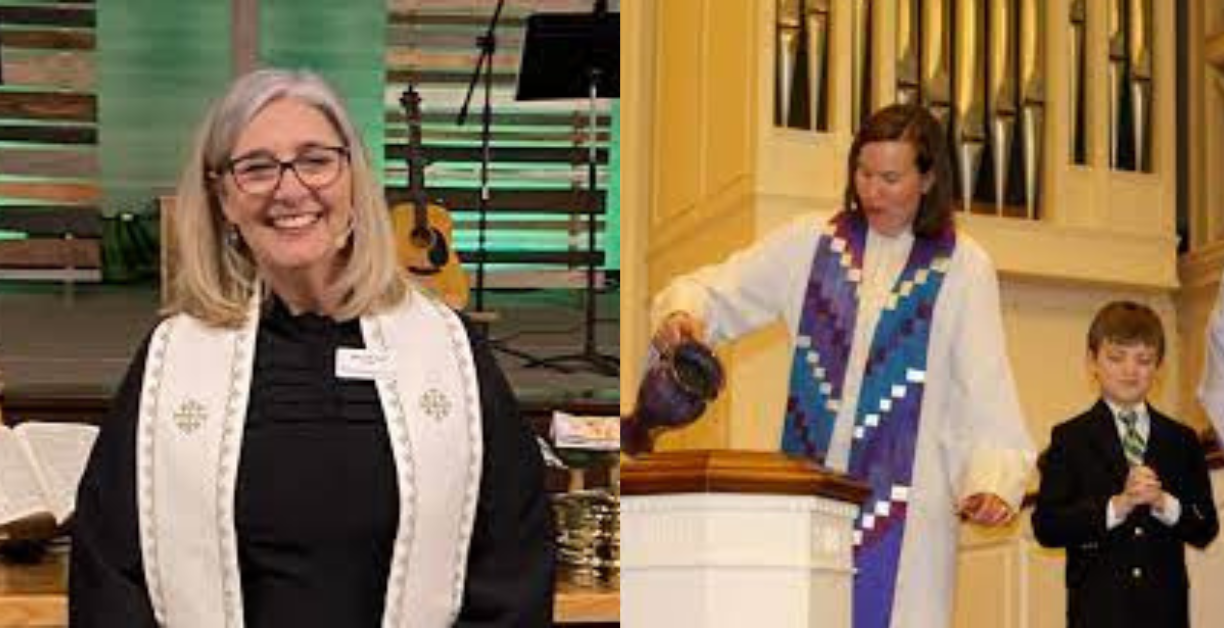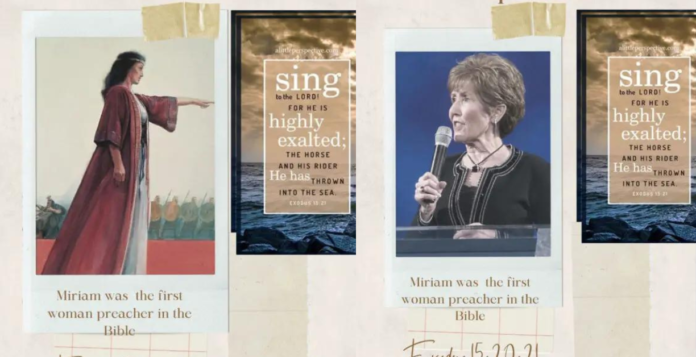
The first woman pastor in the bible was Antoinette Brown Blackwell. She received her ordination from a Congregationalist congregation. She not only preached but also played a key role in founding the All Souls Unitarian Church in Elizabeth, New Jersey. She held the position of pastor emeritus there from 1908 until her passing. On November 2, 1920, Brown Blackwell became one of the very few pioneer suffragists to cast a ballot. She had been 95 years old.
first woman pastor in the bible
Throughout the time period of the Bible, the idea of a “pastor” was not precisely as it is today. Nonetheless, the Bible contains a number of women who were prominent leaders in their societies and might be regarded as the first female pastors. Those are:
Deborah: Deborah was crucial in assisting the Israelites in defeating the Canaanites. She was frequently referred to as a judge and prophetess. In the book of Judges, she is shown as a wise and unwavering leader who settled disputes and shared God’s message with the people.
Priscilla: Aquila’s spouse was introduced to the gospel by Priscilla, a tentmaker who worked with the apostle Paul. She is mentioned by several writers of the New Testament, who commend her for her ability to lead and instruct.
Phoebe: Phoebe, another woman who had a position of authority in the early Christian community, is referred to as a “deacon” of the Cenchreae church. While opinions differ regarding the specific duties of a deacon, Phoebe was clearly important to the church.
Junia: Romans 16:7 speaks about a lady named Junia, who is called “outstanding among the apostles.” While some translators have mistranslated this sentence to refer to a person named Junias, the original Greek language strongly suggests that Junia was a female leader in the early church.
It’s significant to remember that there is still discussion over women serving in leadership positions inside the church. But the biblical accounts of these women’s lives provide a compelling monument to the spiritual abilities and leadership potential of women.
You are reading about first woman pastor in the bible whether or whether you consider these women to be the “first woman pastors” in history ultimately depends on how you interpret the Bible and the role of a pastor. Unquestionably, though, they had a significant influence on the early church and are encouraging stories of women who answered God’s call to ministry and leadership.
I would be pleased to go into further detail about the biblical women leaders who could be regarded as the precursors of modern female pastors. For each person, take into account the following particular points:
Debora held the title of “judge,” although her role was primarily non-legal. She led the Israelites in battle and gave them prophetic counsel with superhuman authority (Judges 4:4–23). This leadership over men challenges gender norms in both religious and secular spheres. She is definitely identified as a chosen leader by God because she is specifically referred to be a “prophetess” (Judges 4:4).
Priscilla:
It is acknowledged that Priscilla actively taught Paul, even correcting his understanding of certain theological concepts. Acts 18:26 mentions her and her husband Aquila on a regular basis. Her collaborative leadership style demonstrates her equality with men.
Paul specifically calls her a “fellow worker in Christ” and commends her for her “wisdom” (Romans 16:3). This endorsement from a well-known apostle further demonstrates her status as an important leader.
It is clear that Phoebe played a leadership and service role in the church, even though the specific duties of a “pastor” are debatable. When she is tasked with delivering an important letter from Paul to the Roman Christians (Romans 16:1), her strength and assurance are evident.
Paul emphasises her proactive support and mentoring of others when he refers to her as a “benefactor” and a “helper of many” (Romans 16:2).

The fact that Junia is called “outstanding among the pastor” in Romans 16:7 has sparked a lot of debate about the status of women in early Christianity. Though this passage has been mistranslated by some translators to allude to a man named Junias, the original Greek clearly reveals a female apostle named Junia. This interpretation is supported by scholars and translations like the New Revised Standard Version, and it defies the popular belief that the apostles were all men.
All in all, these stories about women bring to light several significant concepts:
There were female leaders in the early Christian society.
They performed the roles of teachers, servants, and spiritual counsellors.
They occupied positions of responsibility alongside males and questioned conventional gender roles.
Their experiences serve as a potent illustration of how women can successfully lead and answer God’s call.
It is crucial to remember that different Christian faiths have different interpretations of the Bible and how important it is for women to have leadership roles. Understanding the background and achievements of these remarkable women may serve as a catalyst for ongoing conversations within the church regarding gender and leadership.
With this newfound understanding, I hope to give you a more complex portrait of first woman pastor in the bible and their possible histories as the first female pastors. Do not hesitate to ask further questions if you have any!















